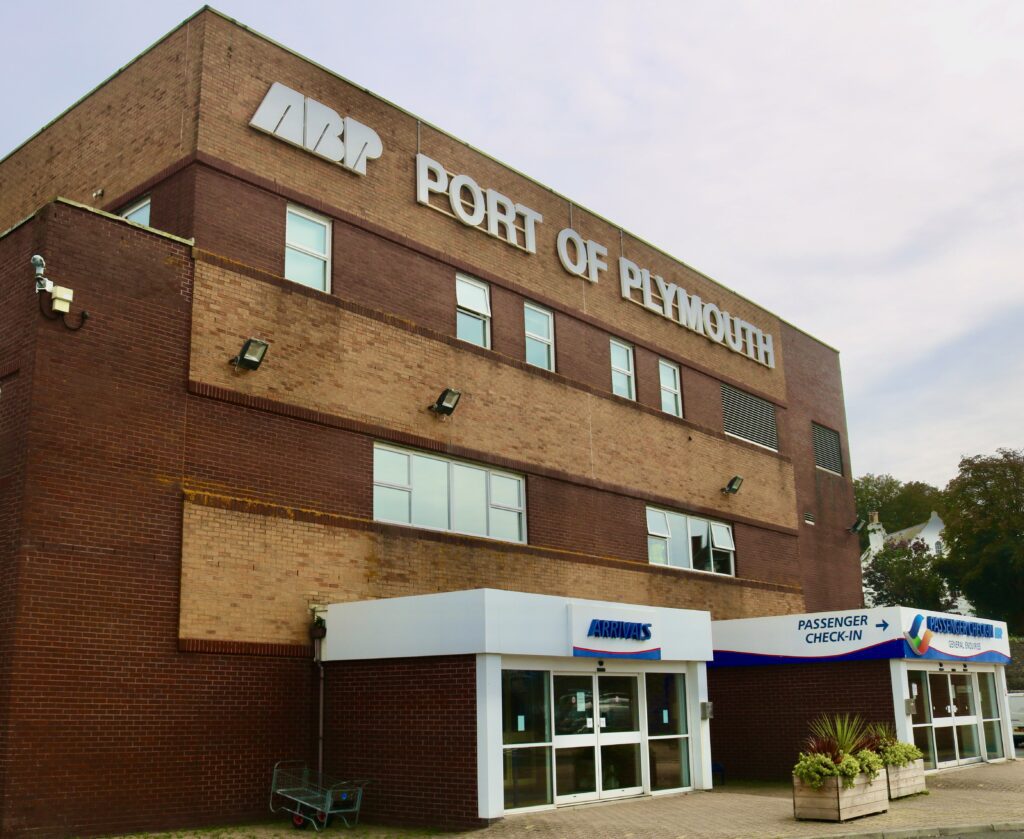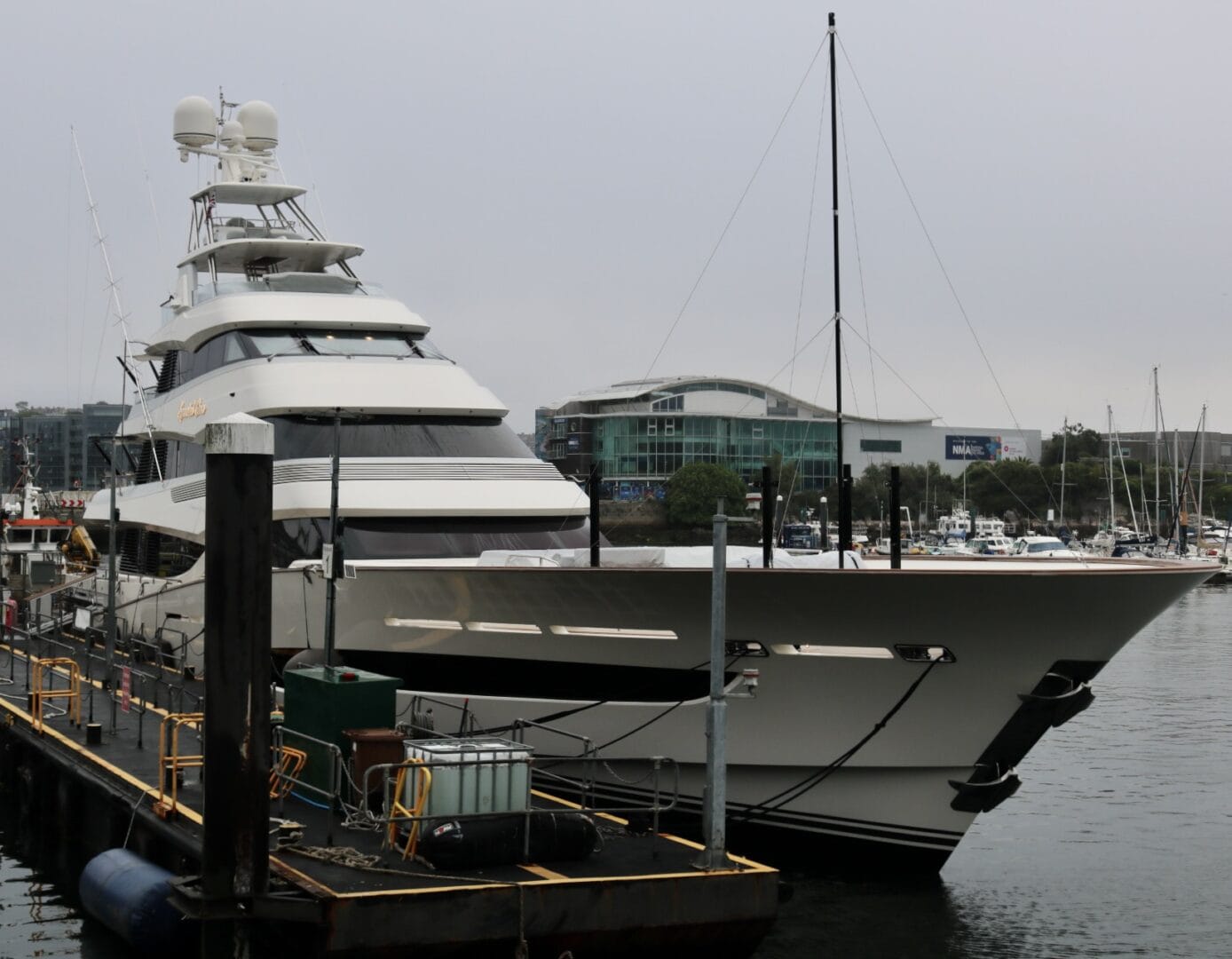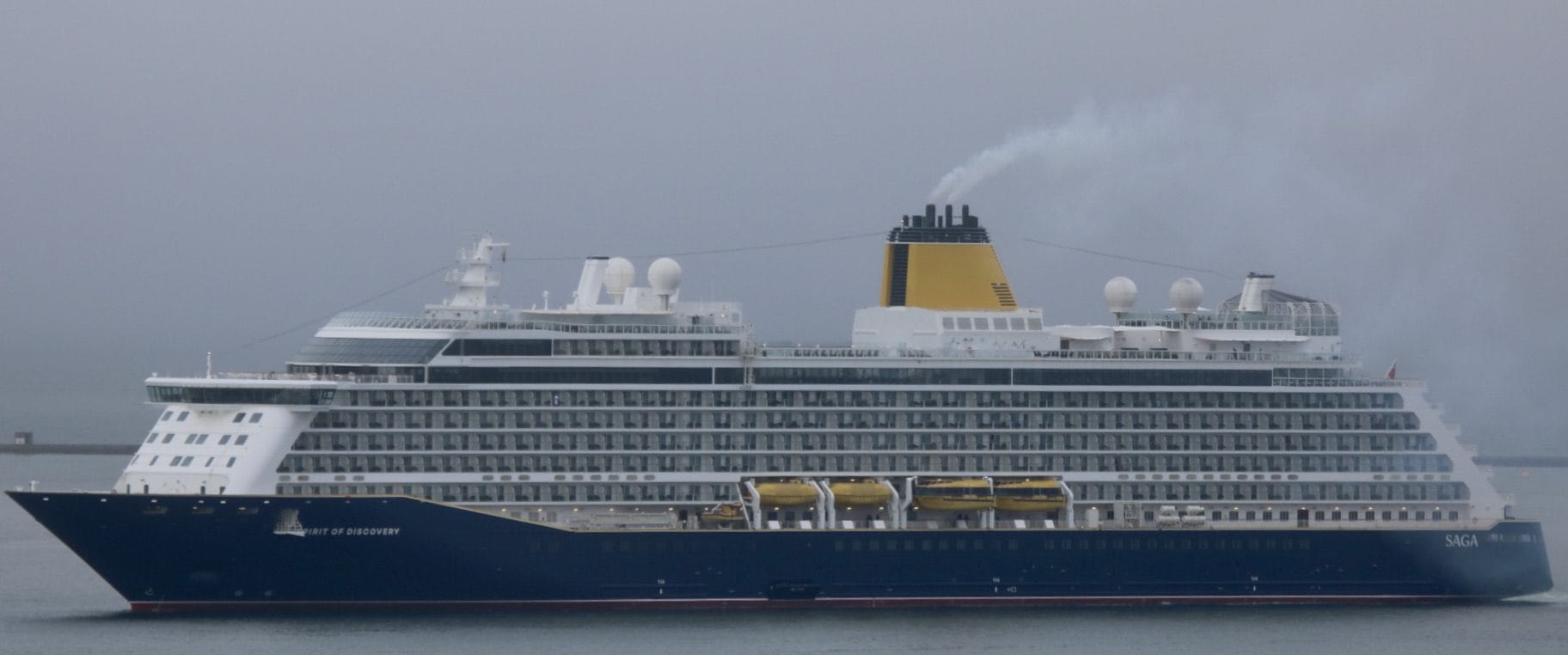Plymouth’s famous and historic Millbay Docks are receiving some serious infrastructure developments with the start of a £1.3 million+ overhaul that will secure the future of the Ferry Terminal, increase the city’s global freight trade, promote its green shipping credentials, and especially expand Plymouth’s international cruise ship visits.
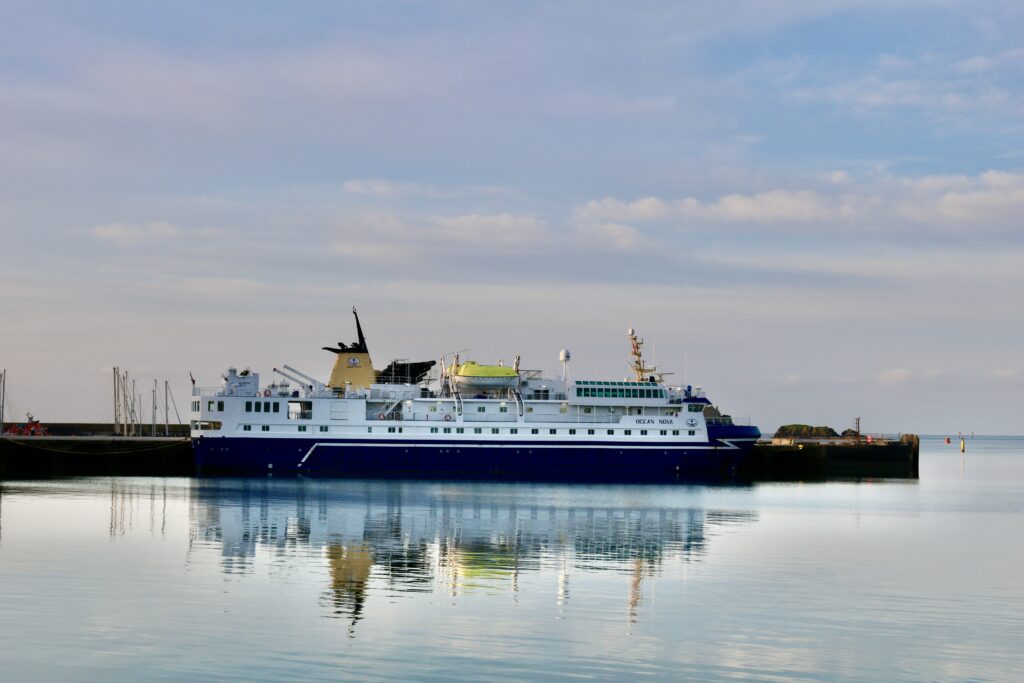
Adrian Buss, Operations Manager-PFSO-Plymouth, at Millbay Docks, (ABP) Associated British Ports, said: “It’s an incredible time to be working here at Millbay Docks during this period of investment, which will help future-proof the ferry port, freight, cruise, and other operations in Millbay for years to come,” he said.
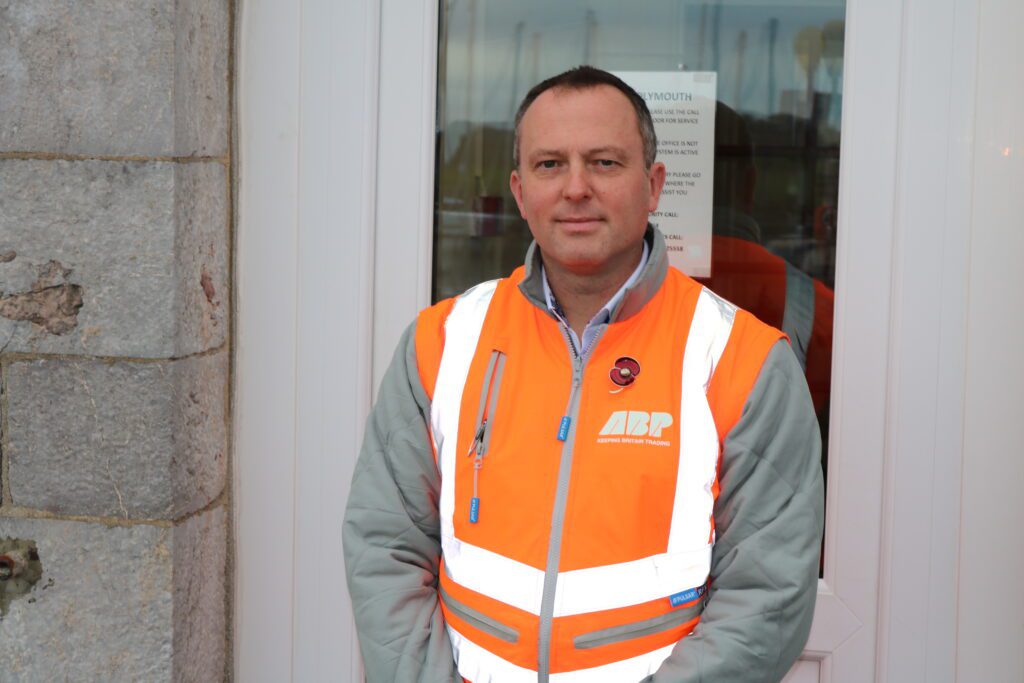
The works being carried out include reconstruction of the West Wharf, where a huge crane can be seen for miles across the waterfront, and will allow Millbay Docks to handle more cargo and freight traffic over the berth.
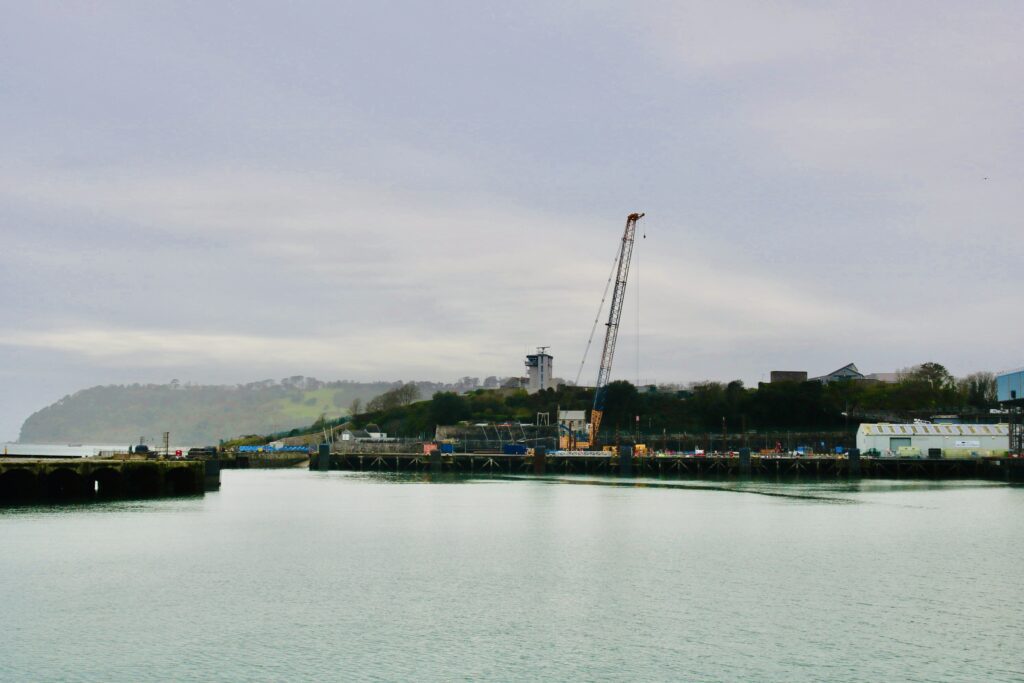
A new state-of-the-art passenger boarding bridge for the ferry and cruise market is being created and will boost connectivity for businesses operating within the Freeport.
The improvement will give easy access to the sea for importing raw materials and exporting finished products, and especially better facilities to improve ferry and cruise ship visits and the passenger experience.
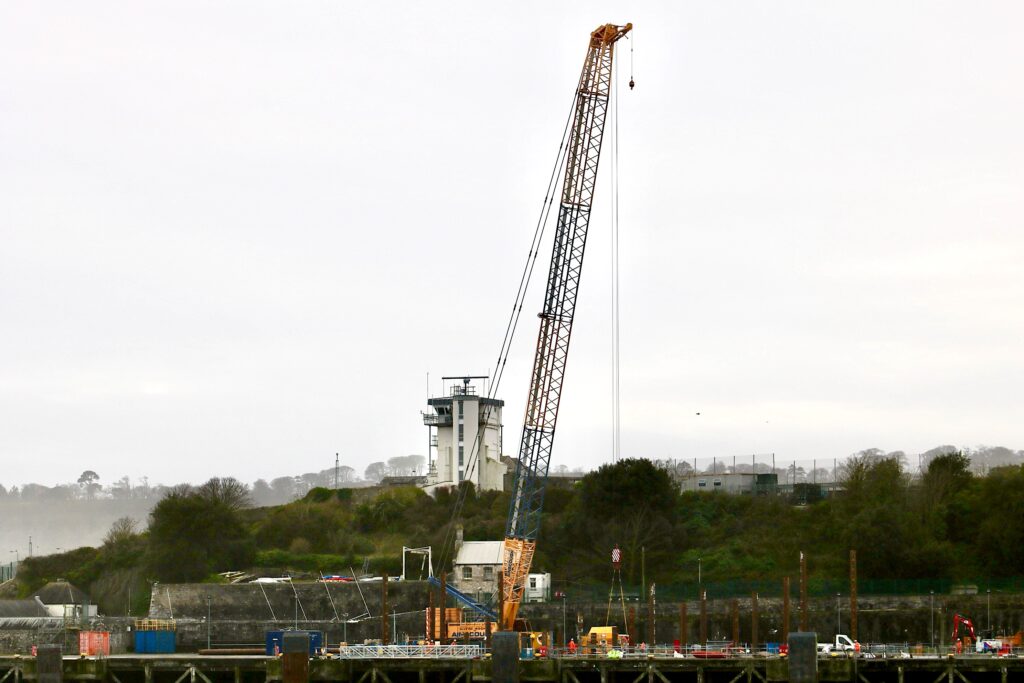
(ABP) is the UK’s largest ports operator, and the first phase of transformation works is now underway at the docks.
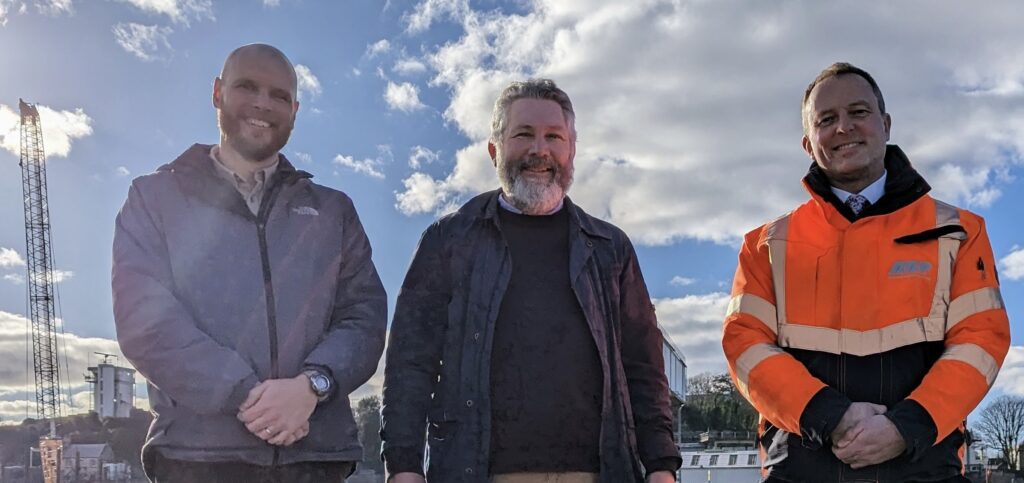
Julian Walker, (ABP) regional director, said: “The works will see infrastructure upgrades, which will help to future-proof the docks and where the local community and broader economy benefit from increased activities within the region.”
“This work marks an important milestone in a transformative journey for Plymouth’s Millbay Docks.”
“We are delighted to be the first funded project that is underway for the Plymouth and South Devon Freeport and is made possible through the £1.3m Seed Capital Funding, alongside further significant investment by ABP.”
“This will strengthen our freight capabilities and expand our offerings to the Plymouth Cruise Market.”
“ABP takes its responsibilities as one of the main port operators in the city seriously, and we want to support the wider economy through our supply chains and being a good corporate citizen,” he said.
Richard May, Chief Executive of Plymouth and South Devon Freeport, said: “It’s great to see our first Seed Capital Project underway.”
“Thanks to (ABP) for mobilising this project so quickly and enhancing such infrastructure that secures the future.”
“It allows us to optimise port operations, increase ship rotations, and consider new routes and high-value cargo types.”
“We will see many of our other infrastructure projects go live this year, just 12 months after the government gave us the green light to be a freeport,” he said.
Government Minister Jacob Young MP, responsible for Levelling Up, Housing, and Communities, added: “The start of this development, made possible by government funding for Plymouth and South Devon Freeport, marks a significant milestone in our efforts to level up and create opportunities for people living in port areas.”
“This project will enhance connectivity for businesses importing and exporting within the Freeport and boost trade and long-term economic prosperity for Plymouth and the wider region.”
“The fact local contractors are undertaking the work also shows our commitment to creating more local jobs—exactly what the FREEPORTS programme strives to achieve,’ he said.
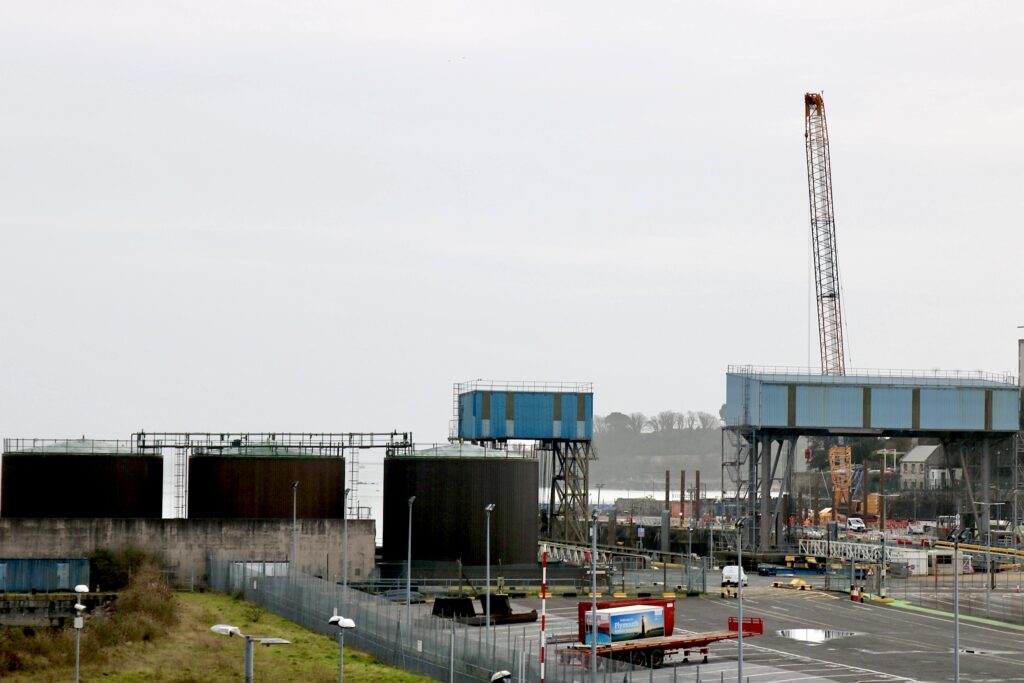
Millbay Docks originally took its name from the medieval tidal mills that once stood across the Hoe waterfront, and the Victorian engineer Isambard Kingdom Brunel first built the docks that became a staging post for the great ocean liners travelling across the Atlantic Ocean.
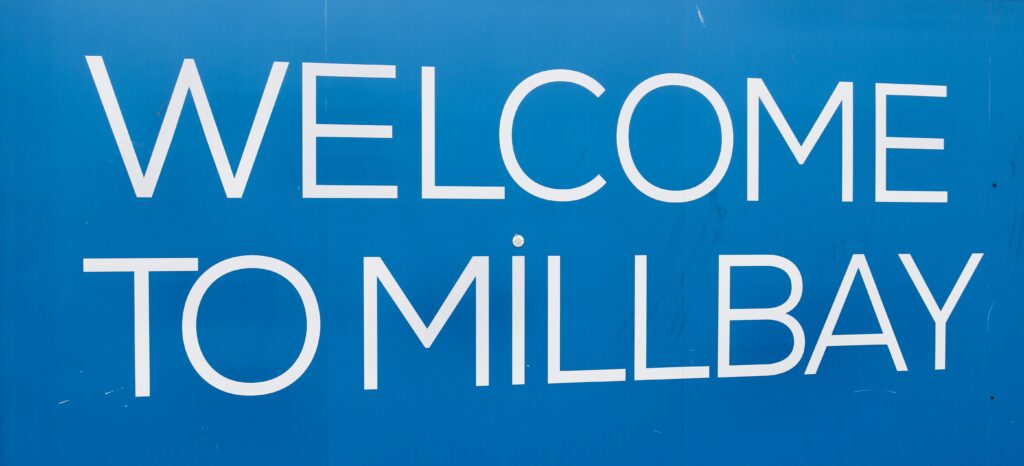
The surrounding area of Millbay has seen a renaissance over the last 20 years with new developments and housing, with ongoing plans to reconnect this ancient part of Plymouth to the town centre again with a Millbay boulevard.
NOTE FILE:

PLYMOUTH AND SOUTH DEVON FREEPORT THE FACTS:
The city’s Freeport was the first of the eight English Freeports to be given the full green light along with two others. The British Government approved its business case in December 2022, and unlocking millions of pounds of grant seed funding and enabling applicable businesses to join and take advantage of the Freeport status.
Benefits of the Plymouth and South Devon Freeport includes:
- Enable new employment land to be bought forward at the three sites of South Yard, Langage and Sherford
- Accelerate the formation of advanced manufacturing clusters in marine, defence and space sectors with low carbon applications at the forefront
- Leverage £250m private sector investment
- Ensure seed capital grant from Government of £25m for essential infrastructure
- Include £29m investment from local councils
- Support a new Innovation Centre at Oceansgate
- Deliver over 3,500 jobs
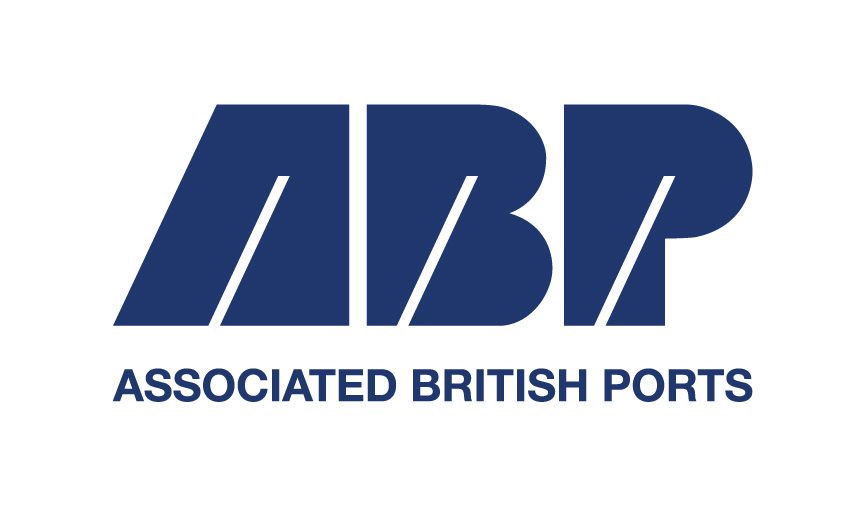
About (APB) Associated British Ports in the South West of England
With the support of its customers, ABP’s ports in the Southwest – Teignmouth and Plymouth – contribute £110 million to the UK economy every year, supporting 1,600 jobs nationally.
- ABP’s Port of Teignmouth
- It handles in the region of 460,000 tonnes of bulk cargo each year, and is ideally situated to serve the ball clay export industry.
- ABP owns and operates Millbay Docks at the Port of Plymouth.
- This covers 50 acres of port estate and is home to Brittany Ferries’ services to France and Spain, which carry around 400,000 passengers and 150,000 vehicles a year.

